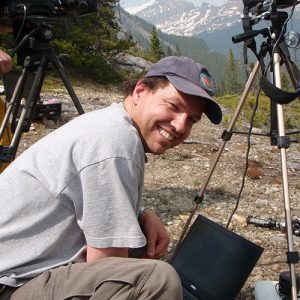
Director
Professor Martin Wooster leads the Earth Observation and Wildfire Research Group, and is a physicist and Earth Observation (EO) scientist by training. Working across satellite algorithm development, EO data exploitation, airborne and ground-based remote sensing fieldwork and laboratory studies – he is a Director within NERC’s National Centre for Earth Observation (NCEO) and the Leverhulme Centre for Wildfires, Environment & Society. Prior to joining King’s, he was a Scientific Civil Servant working on development projects involving EO for the UK’s Department for International Development (DfID).
Read Martin’s full profile
Martin’s Research Publications
Awards and Funding
![]()

Project Manager
Khadijeh Rahmani is the Research Project Manager for King’s Earth Observation and Wildfire Research Group, led by Professor Martin Wooster. As a Research Project Manager, Khadijeh supports the delivery and development of the research programme and airborne capabilities within the Group. This includes managing the operational and logistical needs of the Group, deadlines and deliverables, and liaising with King’s central services.
![]()

Centre Manager, Leverhulme Centre for Wildfires, Environment and Society
Adriana supports the group’s activities and research projects which are funded by or are synergistic with the Leverhulme Centre for Wildfires, Environment and Society.
![]()
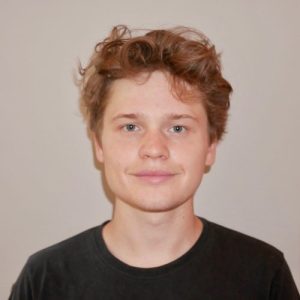
PhD Student
Farrer’s background is in physics, which he studied for a BSc at Durham University. After graduating, he worked in cyber security. He then returned to academia, completing an MSc in planetary science at UCL and specialised in remote sensing. His master’s research project focussed on how surface radiative flux estimates from satellite measurements could be used to determine sea ice melt in the Arctic. His current PhD research at King’s focusses on determining fire characteristics from remote sensing and the relationship with the smoke produced, as well as how well these new techniques can be used to improve wildfire emissions estimates. He was the science lead for FIDEX, our recent airborne campaign measuring wildfires in Canada (August 2023). Farrer’s PhD is funded by the National Productivity Investment Fund through the London NERC DTP.
![]()

Research Computing Officer
Dr Jiangping supports the research computing in the EOFire Research Group. He is interested in algorithm/computing tool development, computer simulation, deep learning and large dataset visualization using web techniques. His research is focused on fire detection, estimation of biomass burning emissions using satellite remote sensing.
Read Dr Jiangping’s KCL profile
![]()

Research Associate
José Gómez-Dans is a research associate in the Department of Geography at King’s College London, situated at the Strand Campus in London. He earned his PhD from the University of Sheffield, where his research focused on the application of polarimetry and interferometry in SAR (Synthetic Aperture Radar) image analysis.
![]()
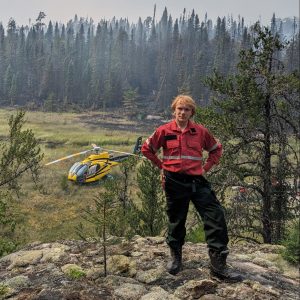
PhD Student
Luke Richardson-Foulger is a PhD student with the King’s Earth Observation and Wildfire research group, funded by the London NERC DTP. Luke specialises in peatland wildfires and smouldering combustion, to better understand the greenhouse gas emissions of wildfires and their role within the climate. Their primary goals during the PhD include quantifying the changes in carbon sequestration in the pre- and post-fire regimes in wetland ecosystems; understanding trace gas emissions from smouldering combustion, how they correlate with primary gases and how they may threaten human health; mapping and understanding the dynamics of elusive ‘overwintering’ fires.
![]()
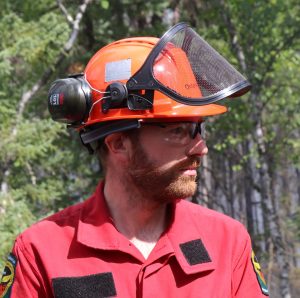
Research Associate
Mark works primarily on measurements of gas and particulate emissions from fires in both field and laboratory environments. His research includes current projects investigating air quality impacts of fire smoke in parts of South East Asia, and also in Canada. Mark runs the Combustion Chamber facility based at Rothamsted Research which is used by a number of researchers in the group to undertake experimental fire work. He is also regularly involved in other field campaigns the group undertake including experimental design, set up, and operation of instruments on the ground and in aircraft.
Read Mark’s full profile
Read Mark’s publications
![]()
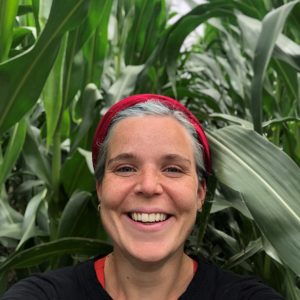
Research Associate
Dr Mary Langsdale is an Earth Observation scientist with a particular focus on land surface temperature and emissivity retrieval and validation. Her research focuses on understanding (with a view to reducing!) the uncertainties in remotely sensed observations of surface temperature that are instrumental in monitoring climate change impacts such as heatwaves and food scarcity.
![]()
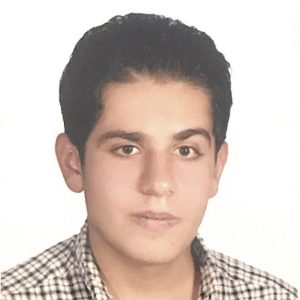
Research Associate
Hamed’s expertise lies in the diligent application of both in-situ and ex-situ techniques to precisely quantify and identify emission concentrations from diverse sources. The works not only involve cutting-edge technologies but also extend to collaborative efforts with interdisciplinary teams and active participation in community outreach. He is dedicated to translating scientific insights into practical solutions, aiming to create a cleaner and healthier environment
![]()

PhD Student
Toby’s background is in Geography and UK fire weather. His current research focuses on quantifying the air quality impacts of agricultural biomass burning in the upper ASEAN region and using ground-truth PM2.5 observations to validate air quality and smoke forecasts made by global and regional atmospheric models. Additionally, Toby has worked as a research assistant within the group, supporting the installation and operation of equipment for both airborne and ground campaigns in the UK, Italy, and Canada.
![]()

Research Associate
William Maslanka received the M.Met. degree in Meteorology and the Ph.D. degree in Microwave Remote Sensing from the University of Reading, Reading, U.K., in 2013 and 2017, respectively. His PhD was titled “Extinction of Microwave Radiation in Snow” and looked to better understand the extinction processes of naturally emitted microwave radiation through the natural snowpack. From 2017 to 2019, he was a Flood Modeller and a Forecaster for the Environment Agency, before working as a Post-Doctoral Researcher with the LANDWISE Project, focusing on the remote sensing of soil moisture, for use with natural flood management, at the University of Reading between 2019 and 2022.
![]()

Research Associate
Weidong works on applying thermal remote sensing techniques to satellite data streams, sometimes with regards to land surface temperature but mainly to detect and quantify vegetation fire activity. He uses these data to support the addressing of key questions regarding landscape fire impacts and effects, both regionally and globally. Weidong has worked on the operational products from a series of geostationary satellites and from Sentinel-3.
Read Weidong’s full profile
Read Weidong’s publications
![]()

PhD Student
Zitong’s background is in electrical and electronic engineering and remote sensing of cirrus cloud. Her PhD research title is ‘Use of AI and Earth Observation in quantifying plume of emissions from Landscape Fires’, the aim of this research is to develop a deep learning model to automatically quantify fire plumes using Earth observation data.
![]()

Research Associate
Zixia received a PhD in Atmospheric Sciences at the University of Manchester. Following the completion of his PhD, Zixia took on a role as a postdoctoral research fellow at the University of Exeter. During this tenure, his focus centered on investigating the aerosol vertical profile in the boundary layer, utilizing data gleaned from Unmanned Aerial Vehicle (UAV) observations. Presently, Zixia serves as a Research Associate, contributing expertise to both the UKEO Climate Information Service (EOCIS) project and the Global Fire Assimilation System (GFAS) at the European Centre for Medium-Range Weather Forecasts (ECMWF).
Read more…
![]()
(Climate X)
![]()
(Satellite Vu)
![]()
(University of Leicester)
![]()
(University of Augsburg)
![]()
(Skogforst Forestry Research Institute, Sweden)
![]()
(University of Wales, Swansea)
![]()
(University of Augsburg)
![]()
(US Forest Service)
![]()
(US Forest Service)
![]()
(Canadian Forest Service)
![]()
(University of Helskini)
![]()
(NHS)
![]()
(University of Southampton)
![]()
(LSE)
![]()
(CIMMYT Mexico)
![]()
(IT consultant, London)
![]()
(Birkbeck University)
![]()
(University of Wales, Aberystwyth)
![]()
(EU-JRC)
![]()
(University of Idaho)
![]()
King’s College London, Bush House (NE wing), 30 Aldwych, London, WC2B 4BG